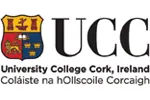

Ireland
University College Cork (UCC)| The award | How you will study | Study duration | Course start | Domestic course fees | International course fees |
|---|---|---|---|---|---|
| BSc (Hons) | Full-time | - | September | EU 3000 | EUR 3000 |
Overview
The BSc Nutritional Sciences combines a number of scientific disciplines to provide a thorough understanding of the role of diet and nutrition in health and in the prevention of major diseases such as cardiovascular disease, cancer, diabetes and osteoporosis.
Nutritional science is the study of food as it impacts our health and is concerned with the provision of food and nutrients to the body to facilitate optimum physical and mental development and maintenance of health throughout life.
The course will give you a comprehensive understanding of the relationshipbetween dietand health and you will learn how to apply this knowledge to the provision of nutritional advice to the public, as well as providing safe, wholesome and nutritious food to the consumer.
A six-month work placement forms an integral part of the course. An application for accreditation of the course by the UK Association for Nutrition is under review.
Course Details
On completion of the course you will be able to:
Year 1 Modules:
Core
Year 2 Modules:
Core
Human Nutrition (e.g. Minerals and Vitamins, Nutrition in Growth, Development and Aging); Animal Nutrition; Biological Sciences; Biochemistry; Physiology; Molecular Biology; Food Chemistry; Food Microbiology; Biostatistics
Years 3/4 Modules:
You will focus on aspects of human nutrition including:
Physiological Functions of Nutrients; Effects of Nutrient Deficiencies and Excess; Clinical Nutrition; Nutritional Status Assessment; Nutrient Composition and Safety of Food; Relationship of Food Intake to Health; Impact of Genome on Nutrient Needs; Public Health Nutrition; International Nutrition; Sports Nutrition; Research Project in the Area of Nutrition; Toxicology; Immunology; Sensory Science
These courses are complemented by courses in Food Science and Technology and Food Microbiology.
An integral part of this course is the six-month work placement in Year 3.
See the College Calendar for more detailed information on the programme and the Book of Modulesfor a more detailed description of programme modules.
Fact File
Course Code: CK504
Course Title: Nutritional Sciences
College: Science, Engineering and Food Science
Teaching Mode: Full-time
Qualifications: BSc (Hons)
NFQ Level: Level 8
Costs: Full-time EU/EEA/Swiss State undergraduate students may be exempt from paying tuition fees. The State will pay the tuition fees for students who satisfy the Free Fees Criteria. In 2016/17 the Student Contribution Charge will be EUR 3,000 and the Capitation Fee will be EUR 165.
2017 Entry Requirements: H5 in two subjects, and O6/H7 in four other subjects in the Leaving Certificate from Irish, English, Mathematics, one Laboratory Science subject (i.e. Chemistry, Physics, Biology, Physics with Chemistry (joint) or Agricultural Science) and two other subjects recognised for entry purposes. Additional Requirements: Special Entry Requirements: H4 in a Laboratory Science subject or Mathematics or Applied Mathematics.
Entry Points: 2016: 510. Points may vary from year to year.
Course Practicalities
Year 1: approximately 300 hours of lectures, 100 hours of practicals and 58 hours tutorials in Biology, Chemistry, Nutrition, Mathematics, and Physics.
Year 2: approximately 234 hours of lectures, 126 hours of practicals and self-directed learning in Biochemistry, Food Chemistry, Microbiology, Molecular Biology, Nutrition, Physiology and Statistics.
Year 3: approximately 204 hours of lectures, 66 hours of practicals and self-directed learning, and eight hours of tutorials in Food Science, Microbiology and Nutrition. You will also undertake a library project
Year 4: approximately 222 hours of lectures, 12 hours of practicals, 12 hours of directed or self-directed study, a 14-week laboratory-based research project and seminars in Immunology, Nutrition and Toxicology.
Assessment
Written exams will take place before Christmas and in May. Not all modules will have formal examinations. Many modules use other types of assessment including in-semester multiple-choice-question examinations and laboratory write-ups. Some modules will have a project report as the main outcome of the module and this is also assessed.
Application Procedure
EU Applicants: Application to Year 1 of the degree programme is made directly through the Central Applications Office (CAO). Applicants should apply online at www.cao.ie. The normal closing date for receipt of completed applications is 1st February of the year of entry.
Non-EU Applicants
Mature Applicants: Application is made through theCAOand the closing date for receipt of completed applications is 1st February of the year of proposed entry.
Further Contact Information
Dr Tony SheehyCourse CoordinatorT: +353(0)21 4902382E:[email protected]2017 Entry Requirements: H5 in two subjects, and O6/H7 in four other subjects in the Leaving Certificate from Irish, English, Mathematics, one Laboratory Science subject (i.e. Chemistry, Physics, Biology, Physics with Chemistry (joint) or Agricultural Science) and two other subjects recognised for entry purposes. Additional Requirements: Special Entry Requirements: H4 in a Laboratory Science subject or Mathematics or Applied Mathematics.
Entry Points: 2016: 510. Points may vary from year to year.
Contact University College Cork (UCC) to find course entry requirements.
Below are some suggested courses at other providers that you may also be interested in:
Digital International Relations & Diplomacy (UNITAR) Master Degree
EU Business School, Geneva
Find out moreMRes in Sustainable Energy and Building Technologies MRes
University of Nottingham Ningbo China
Find out moreElectronic Music Production & Performance BA (Hons), Cert HE
Catalyst - Institute for Creative Arts and Technology
Find out moreIf you do not meet the entry requirements for this course then consider one of these courses from another institution:
There are 338 other courses listed from University College Cork (UCC). A selection of these are displayed below:
Join the Сưłć´«Ă˝ email list and never miss a chance to turn your study abroad dreams into reality!

Find out more about studying in Ireland